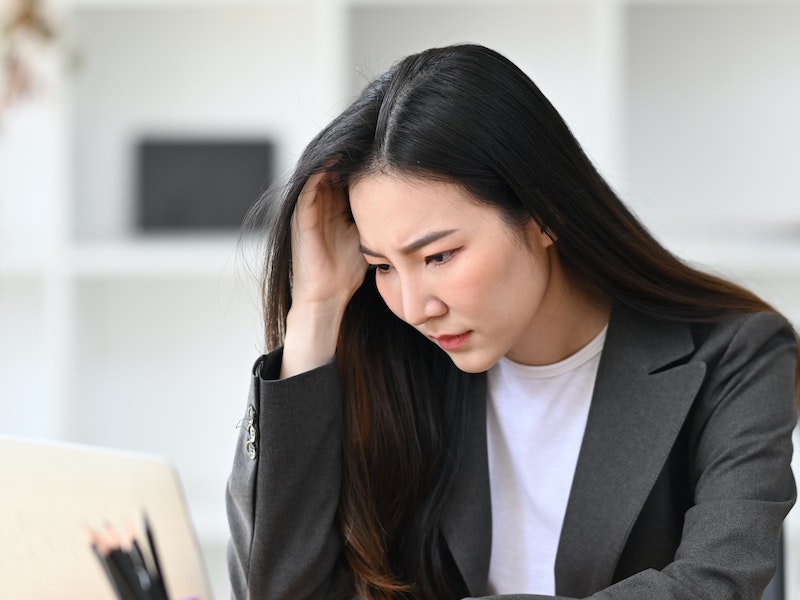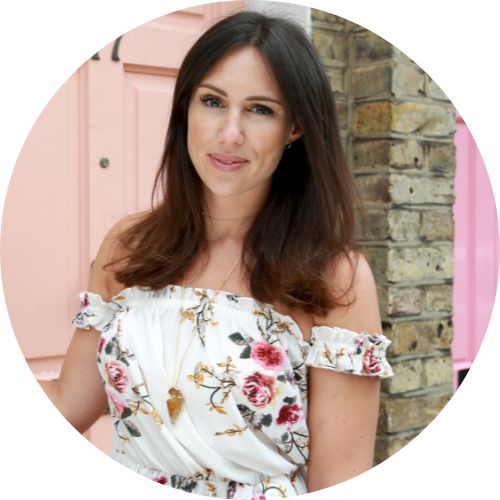
I’m close to falling off the treadmill. I rush from here, to there, always late, always with more to do than I can possibly fit into the day. There’s too much work, too much life admin, and too many WhatsApp chats to keep up with. And my toxic trait when life is too busy? I push myself harder, work longer, and commit to more, and the one thing I definitely don’t have time for? Rest. Sound familiar? Are we trapped in a cycle of busyness? Or is it an addiction? Are we really busier than ever? And how can we become, well, less busy?
With smartphones making it possible to work anywhere, emails dinging on our bedside tables and the internet connecting us to different time zones all over the world, there’s a sense that we perceive ourselves now to be the busiest generation to ever live. There’s even a sense that we are busier after the Covid Pandemic, trying to catch up on lost time. But are we really so busy?
Research has found that we are actually no busier than any generation before us. A study conducted by University College London’s Centre for Time Use Research comparing research dating back to 1961 found that we are actually working less and sleeping more today than we were 50 years ago.
So why do we feel busier? Is it a choice? Some argue that if we are busy, and we are busy doing important things, then, ergo, we are important. I’m sure when we look deeply we can all recognise an element of truth to that idea, or even see it manifest in a colleague or a friend. A pal of mine who regularly takes work calls on our Sunday brunch dates recently asked me how she would get money back on a flight that had been cancelled with a specific airline. When I told her she had to email the airline and request the refund directly, she exclaimed, ‘But I don’t possibly have time to do that!’. My initial, ugly thought was ‘why does she think she’s more important than anyone else, almost everyone I know has had flights cancelled in the past few years due to Covid or airline strikes’.
Science backs this anecdotal idea of ‘busy equals importance’ up. A study at Columbia Business School found that ‘busyness and lack of leisure time’ has become a status symbol. Another study found it may not actually be that we have too much to do that makes us feel like we have less time, rather, the perceived emotional conflict between goals which compete for our time, for example, guilt about where time is being spent and concerns over loss of income. In other words, it’s the emotional perception of the things we have to get done which are in conflict with each other (emotionally or financially) which makes us feel like we have less time, not necessarily the amount of time they take to complete.
“Being “busy” can also be a way of distracting ourselves from being in the present moment” says Fini Cooper, female Breath Coach and Founder of The Breathway. “I think many of us at least sometimes use busyness as a distraction from being with ourselves and to numb or avoid painful feelings and situations. This of course means a disconnection between mind and body.”
A further explanation for busyness, is our tendency to have an “action bias”; our inclination to favour action (or busyness) over non-action. So being ‘busy’ is potentially not something that is happening to us, but a feeling that we perceive, or worse, in an ironic twist, something we crave or are subconsciously wired to create in our lives.
When I was writing my book, alongside a full-time freelance career, I knew something had to give in order for me to be able to fit it all in. The first thing to go was my social life. Every evening and weekend was spent working. I didn’t see my friends, my family. Self-care quickly went out the window too. I didn’t go out, go to gigs, for brunch, for walks. I didn’t nap on the sofa, I didn’t lay in on a Sunday morning or watch a film on a Saturday evening. I didn’t get outdoors, I didn’t take holidays. And worst of all? I didn’t sleep. During my most extreme period of busyness, I worked until 2am in the morning only to get up again at 7am to open up my laptop and carry on. The result? Extreme burnout and eventual panic attacks. Aside from a measly five hours sleep a night (any less has recently been found to link to multiple diseases including cancer and diabetes, I was getting no rest. And it broke me.
The same researchers who found the link between emotional conflict and perceived lack of time, explain that it can have “many harmful consequences such as poorer health, trouble sleeping, and depression.” Research has also found that burnout is caused by a disparity between a person’s unconscious needs, and the opportunities and demands at the workplace, which can have detrimental effects on psychological and physical well-being. The authors of this research also note that burnout is essentially an ‘erosion of motivation’. So, when we reach the point of burnout, we also lose the drive and energy to keep going. Studies have also found that when we feel busy and pressed for time, our performance is impaired.
So, if busyness makes us feel stressed, leads to health problems, and impairs our performance, how can we combat it? Diving in head first and taking yourself off on a month-long yoga retreat to Bali might sound like a dream solution, but even if we could just drop everything, it would likely all be waiting for us when we get home anyway.
“Our demanding world means that it is more important than ever to really prioritise the things that feel true for us (where we can!) as we are so constantly pulled in many different directions. What is it that truly lights us up? Where can we lighten the load? Is everything in our calendar really necessary, or could we cut back?” asks Cooper. “It is my belief that those who are the busiest need rest the most. We weren’t built for the constant sensory and stimulatory overload that we now have, even though it has become so normalised. When we continually push ourselves, our body often finds a way to make us rest, sadly usually in the form of an illness of some kind. If our nervous systems are overly stimulated for a long period of time, this can disrupt many different systems in the body, including our hormones, digestion, fertility and immune system. Furthermore, in a historically male-dominated workplace, it has been hard for women to intuitively listen to the cycles of our bodies, but this is also so important. We have different needs during the varying phases of our menstrual cycle and resting is crucial in order for us to function optimally.”
‘Micro rests’ could be a brilliant place to start in order to introduce rest to a busy lifestyle and combat the feelings of being pressed for time without putting more pressure on your schedule. Researchers have identified a simple strategy to ease the false feelings’ of being pressed for time; slow breathing. Slowing down the breath and pacing your breathing, for example, breathing in to the count of four, and out to the count of four, has amazing benefits for the nervous system, stimulating the vagus nerve and parasympathetic nervous system, which in turn reduces stress chemicals in the brain, which can even lead to reduced blood pressure.
Another option they suggest is to “channel amped-up feelings of stress into more productive high-energy emotions such as excitement. Both techniques were successful in making participants feel that they weren’t as pressed for time as they had first feared”, they confirmed.
Another ‘micro rest’ to try is daydreaming, which has been found to increase motivation and performance, decrease anxiety, and help plan for the future more effectively. These brief moments of quiet reflection have been found to be important for development and wellbeing. So even within these short micro-rests, we can begin to see that rest is not idleness. To perform at our best, let alone champion our mental health, we must incorporate rest, beginning with small moments, into our busy days.
And when it comes to sleep, yes, you guessed it, ‘burning the candle at both ends’ might get you some off your to-do list in the short term, but won’t serve your wellbeing or career ambitions for the long haul. And the busier we are, the worse quality sleep we get; half of full-time workers in the UK (52%) are getting a bad night’s sleep from work stress, compared to 39% of part-time workers. However, the key to sleep success may not be in getting more sleep, but in getting better quality sleep during the hours you are in bed, or even a little shut-eye in elsewhere. One recent study found that more sleep at night did not actually improve people’s work productivity, earnings, financial choices, sense of well-being, or even blood pressure. It was in fact short daytime naps that were found to improve productivity and well-being.
However, busyness might not be the absolute enemy; science shows that people who have something to do with their days – even something pointless – are happier than people who are idle. The key is to find balance in scoping out time for rest, in order to make your busy hours count, and not find yourself in burnout.
“It’s important to know that even a few minutes of breathing techniques each day can make a real difference to how we feel, so even if you feel there is so much on your plate, there is time for conscious breathing. I recommend beginning with a really simple practice. One of the most fundamental parts of breathwork is cultivating body awareness and starting to listen and understand the signals our body gives us. The more frequently we tune into our breath, the more we will learn the cues our body sends us when it is time to rest. As this is not something many of us are taught growing up, we continue to push through and ignore sensations and tensions until sometimes we lose the awareness altogether.”
 About the author
About the authorAli Roff Farrar is a wellness writer, yoga teacher and mindfulness expert. She is passionate about combining the western sciences of psychology, neuroscience and coaching with the Eastern philosophies of meditation, mindfulness and yoga, to cultivate true wellness of body and mind. Her first book ‘The Wellfulness Project‘ (Aster, £16.99) was published in 2020.
